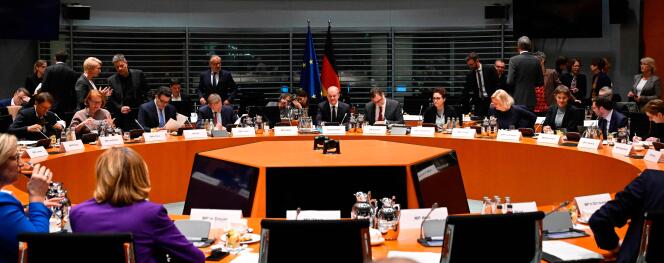


On Tuesday, November 7, after a night of negotiations, the German regions and the federal government agreed on a series of measures aimed at tightening immigration and asylum policy across the Rhine. For Germany, which over the past two years has adopted an open approach, guided by the urgent need to fill its labor shortage, this marks a turning point. The prevailing view is that the country has "reached its limits," to use an expression widely deployed by politicians of all stripes. "We need mechanisms to ensure that the number of refugees arriving here, especially through illegal immigration, is contained," declared Malu Dreyer, the Social Democrat Minister-President of Rhineland-Palatinate, ahead of the negotiations.
The package of measures announced on Tuesday morning includes provisions to reduce the time taken to process asylum applications and to speed up the time taken to appeal these decisions, which often take years.
The government also wants to conclude agreements with migrants' countries of origin and transit to facilitate deportations in exchange for legal immigration to Germany. Berlin wants to tighten controls at Europe's internal borders and is considering examining the status of asylum seekers in third countries. Family reunification is to be restricted, and a multi-party commission is to evaluate a reform of asylum law. A new division of financial burdens between the federal state and the regions was also agreed upon.
The signal for this about-turn on migration had already been given by the chancellery on October 20. In an interview with Spiegel, Olaf Scholz declared that Germany "must finally carry out large-scale deportations." This was a new demonstration of firmness on the part of the Social Democrat chancellor, who in January said at the Davos conference that "those who want to roll up their sleeves are welcome in Germany." Nine months later, with the country in recession and the far right on the rise, it was no longer a time for invitations but for strict restrictions on illegal migratory flows, in consultation with the Christian-Democrat opposition in the Bundestag.
Politically, this is a delicate turning point, as the number of asylum seekers in Germany is very high. According to figures from the Office for Migration and Refugees, over 250,000 people applied for asylum between January and September this year, 60% of them from Syria, Afghanistan and Turkey. Their numbers could reach 300,000 by the end of the year, according to experts, after 240,000 in 2022. In addition, 1.2 million Ukrainians have arrived since February 2022, and are exempt from the asylum procedure.
You have 60% of this article left to read. The rest is for subscribers only.
